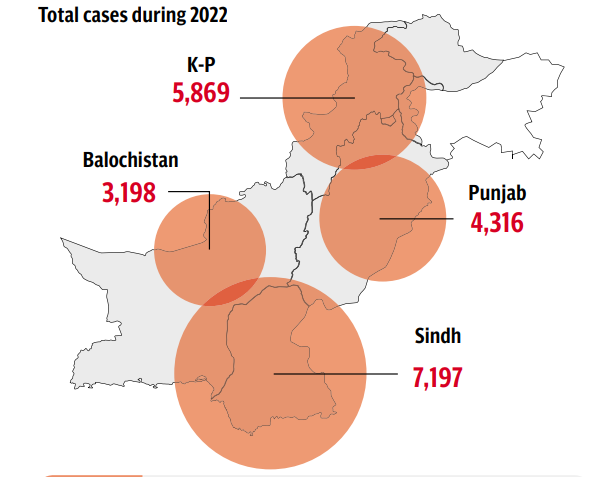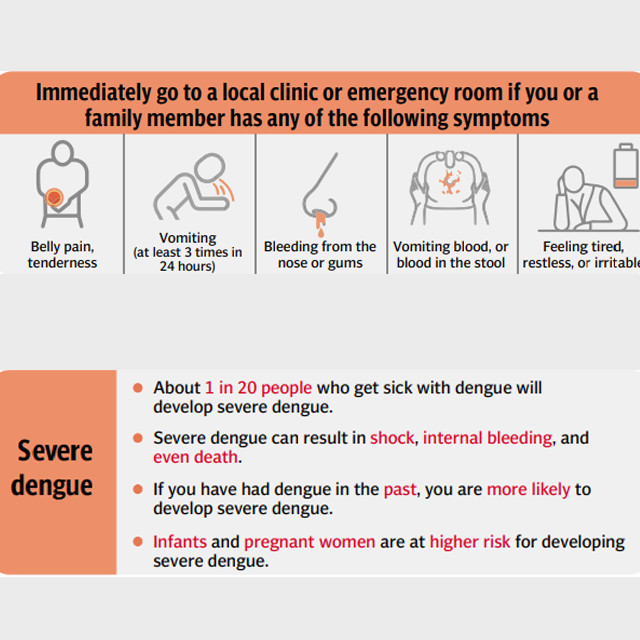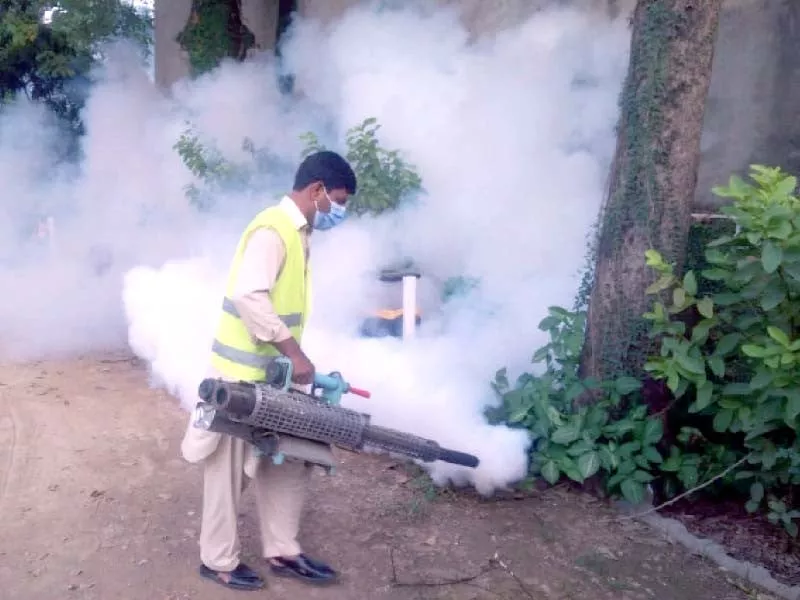Dengue holds country hostage yet another year
Provincial governments’ strategy in combating the virus has been lackluster, inefficient
KARACHI / LAHORE / PESHAWAR:The historic monsoon flooding has left homelessness, food insecurity, and lack of healthcare in its wake - factors which a potentially deadly mosquito borne viral disease is now exploiting. However, dengue’s spread, albeit aided by the torrential downpours, could have been curtailed if lessons were learnt from campaigns of yesteryear.
Like the four seasons come and go, dengue season has now become a fifth season for which alarm bells ring in routine fashion but the government, regardless of who is in charge, seems lethargic when trying to combat it. Professor Rafiq Khanani, President of Pakistan Infection Control Society (PICS), while talking to The Express Tribune, remarked that dengue had been reported in Pakistan since 1996 “yet despite the passage of 26 years, the virus has not been controlled in all four provinces.”
Presently, the mosquito-borne disease has gripped all parts of the country and residents are perturbed by the fact that the virus has become a regular part of their lives. Ahmed Ali, who belongs to Khyber Pakhtunkhwa’s capital, said, “Peshawar is a dengue hotbed every year. However, the district administration and health department only react once cases have increased.”
Two of Ali’s family members are currently infected with the virus and he was of the view that the government like always had failed to fulfil its responsibilities. Some 520 kilometres away from Peshawar, Muhammad Asif, a dengue patient in the Johar Town area of Lahore, shares Ali’s views. “On the one hand I have contracted the virus, on the other there is no satisfactory health care being provided,” remarked Asif, adding that if the government could not curtail dengue, it should at least improve the public hospitals where the virus is treated.

A plea similar to Asif’s has been echoed in Karachi as well where the hospitals are currently overburdened due to the influx of dengue patients. Sources privy to the matter told The Express Tribune that public hospitals in the entire city had adopted an unannounced policy of not admitting any more patients.
Sindh’s health department Secretary, Zulfiqar Shah, when asked about the lack of beds in Karachi, said that the department had already issued instructions to all government hospitals of the city to set up dedicated dengue wards. Professor Khanani, on the other hand, believes that there would be no bed shortages or a frantic population, if dengue larvae were sprayed on time.
The PICS President’s assessment holds weight, as officials familiar with the spraying campaign informed The Express Tribune that the Anti-Dengue Program Cell, which was responsible for spraying larvae was merged into the Vector Borne Diseases Program in 2020, under which the District Health Offices (DHO) were responsible for spraying; however, the DHOs had not done so for the last two years.
Similarly in Lahore, provincial health department sources said that the anti-dengue campaigns had stalled due to a rift between the district government and the Primary and Secondary Healthcare Department. However, it is also pertinent to mention that in Lahore despite 1,746 places being culled of dengue larvae, patients of the virus have only gone up, as per the Secretary, Primary and Secondary Healthcare Department, Punjab.

When asked about strategies to curtail the virus, the secretary, Dr Arshad Ahmed, said, “we really need the public’s help in combating this virus, so they should cooperate with the government as much as possible.” Whereas, in K-P’s capital, the department in charge of dengue control feels it has done whatever was possible with its limited resources.
Dr Qasim Afridi, Programme Manager, Dengue Control Programme, said that the government announced a Rs173 million budget to combat the infection but the department had only received half of it. “However, the programme and government cannot control dengue on their own, the citizens need to do more to spread awareness,” implored Dr Afridi while talking to The Express Tribune.


COMMENTS
Comments are moderated and generally will be posted if they are on-topic and not abusive.
For more information, please see our Comments FAQ